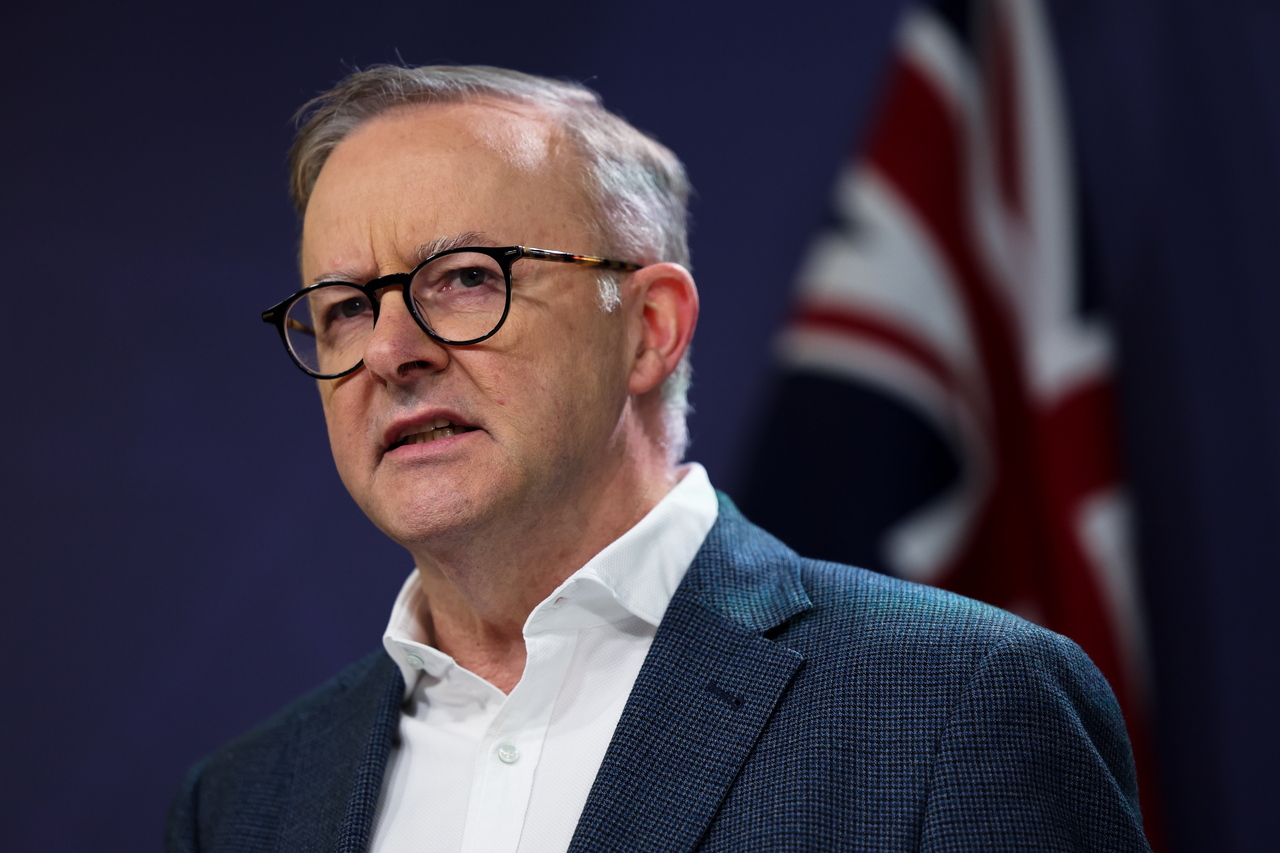Australian PM faces hurdles as he seeks to end climate wars
Sign up now: Get insights on Asia's fast-moving developments

Mr Anthony Albanese is quickly discovering that the promise to end the climate war may be harder to fulfil than expected.
PHOTO: EPA-EFE
SYDNEY - Australian Prime Minister Anthony Albanese was elected in May with a pledge to "end the climate wars" and to finally deliver a national climate policy, but he is already struggling to secure passage of his headline proposal for reducing carbon emissions.
Despite Australia having one of the world's highest levels of emissions per capita, successive governments have repeatedly failed to introduce a fixed and reliable scheme for cutting carbon pollution and meeting agreed international emissions targets.
In 2014, the Liberal-National coalition government scrapped a carbon tax introduced by Mr Albanese's Labor Party, but the coalition then faced repeated internal bickering that thwarted a range of climate proposals.
In May, the Labor party defeated the coalition after promising to unify the country around a clear plan to move towards a clean energy future. In his victory speech, Mr Albanese declared: "Together we can end the climate wars. Together we can take advantage of the opportunity for Australia to be a renewable energy superpower."
But Mr Albanese is quickly discovering that this promise may be harder to fulfil than he has expected.
Labor has proposed to cut emissions by 43 per cent by 2030 from 2005 levels and to legislate this target so that it cannot be easily unwound. Mr Albanese plans to introduce the legislation next week when Parliament resumes for the first time since he won the election.
The Liberal-National coalition, which has resisted strong climate action, opposes Labor's legislation, saying it is unnecessary and the target may prove difficult to achieve if global turmoil adds to pressure on energy prices.
This leaves Labor needing the backing of the Greens to pass the Bill in the Senate, where no party has a majority. But the Greens' policy is to cut emissions by 75 per cent by 2030, a reduction that most climate experts say will allow Australia to achieve its share of reducing global temperature rises to 1.5 deg C above pre-industrial levels.
The Greens leader, Mr Adam Bandt, had previously criticised Labor's policy as weak and "not science-based", saying he would consider joining the Liberal-National coalition to vote against it. But he signalled this week that he may be willing to compromise, suggesting that Labor's 43 per cent target could be set as a minimum rather than a "ceiling".
"Our preference is to improve and pass this Bill, but the government must come to the table," he said on Wednesday (July 20).
Labor holds 26 seats in the 76-member Senate but could secure a majority with the support of the Greens, which holds 12 seats, as well as one other MP. Moderate Liberal Senator Andrew Bragg has indicated he may defy his party and support Labor's target. Labor would also be likely to secure the backing of at least one of the remaining crossbench MPs.
The standoff between Labor and the Greens has recalled memories of the failed effort by former Prime Minister Kevin Rudd to introduce an emissions trading scheme in 2009. The Greens believed the scheme was too weak and joined the coalition in opposing it - a move that left the country without a carbon price and paved the way for a seemingly endless stalemate.
Mr Albanese has pointed to that experience, saying the Greens' decision to vote against the emissions trading scheme led to "a decade of inaction and delay and denial". But he has insisted that he will approach negotiations with "goodwill".
And Mr Bandt, likewise, said on Wednesday that he would negotiate the legislation "in good faith".
The future of Australia's climate policy is now in the hands of Labor and the Greens, and next week's session of Parliament will reveal whether they are genuinely willing to move beyond the political bickering of the past.


